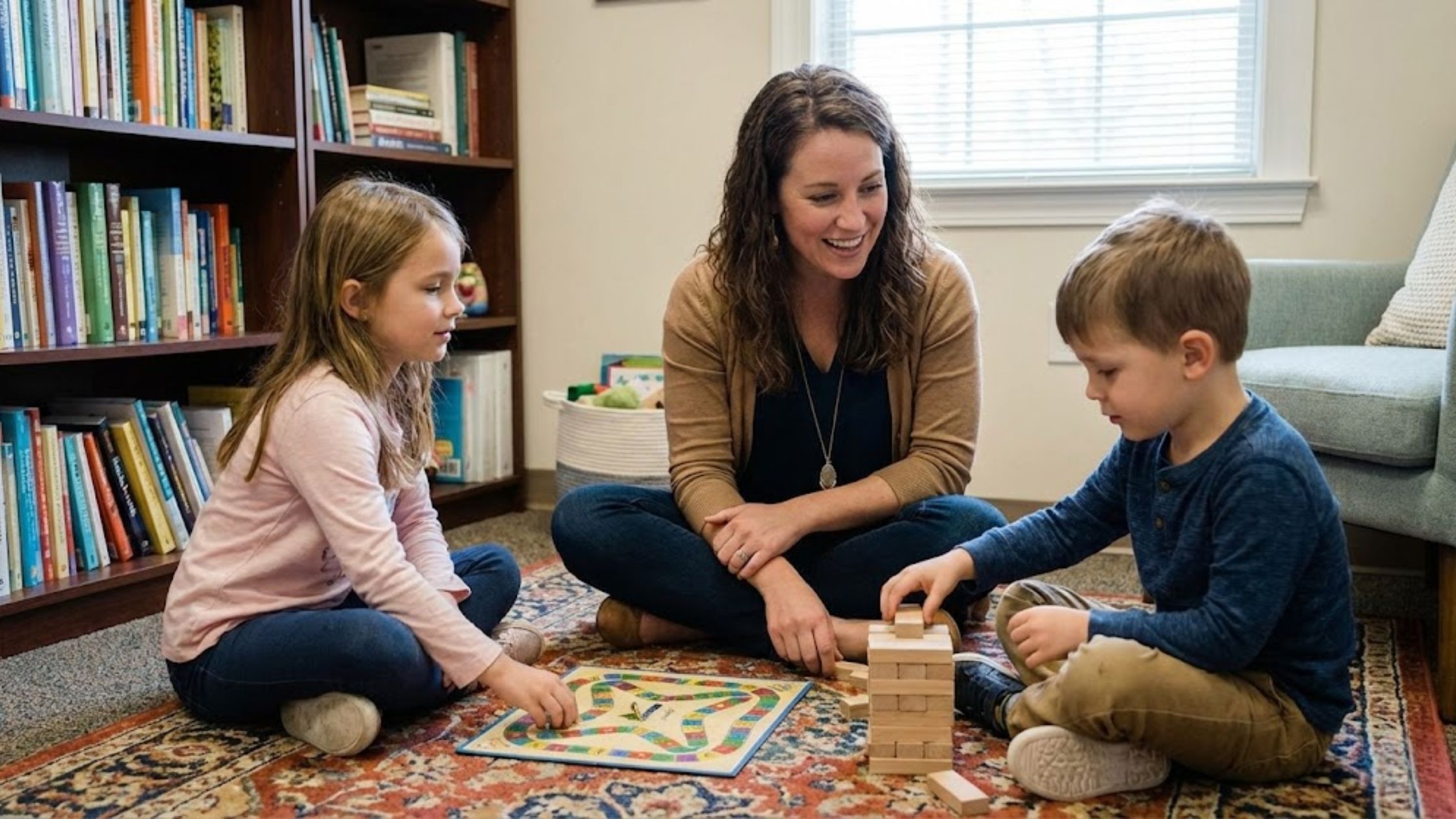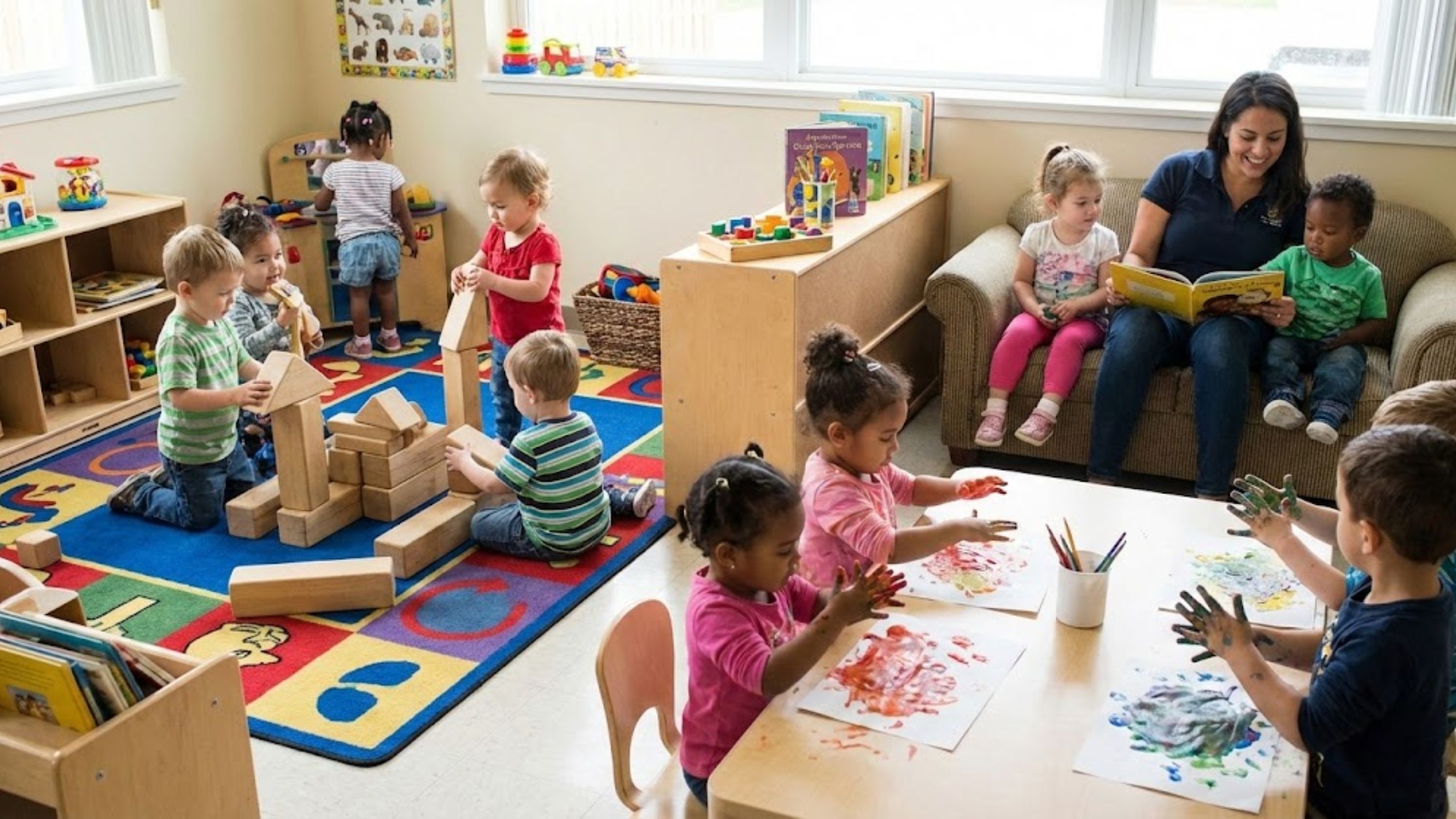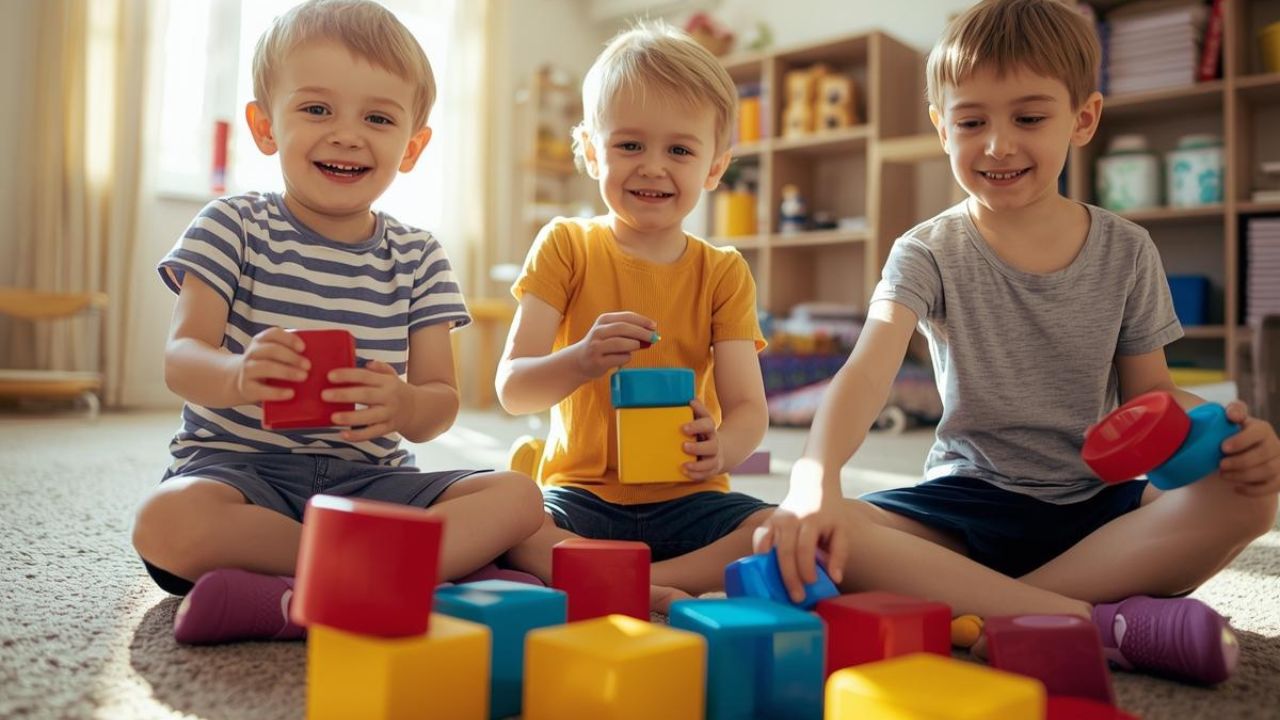Daycare is more than just a place for children to be cared for; it’s the foundation for their educational journey. Nurturing a love of learning in these early years is crucial for their future success.
Early Learning in Your Child
The human brain undergoes rapid development during the early years. Experiences in these formative stages significantly impact a child’s cognitive, social, and emotional growth. Daycare provides an ideal setting to stimulate young minds and ignite a lifelong passion for learning.
Building a Strong Partnership with Daycare Providers
Creating a solid partnership with your child’s daycare providers is crucial for fostering an environment where your child can thrive. This collaboration hinges on open communication, shared goals, and mutual respect, all of which contribute to a supportive and enriching experience for your child.
Communicate with Your Daycare Regularly
Consistent and open communication with daycare staff is vital. Regularly share insights about your child’s interests, strengths, and challenges. This information helps caregivers tailor their approach to meet your child’s unique needs, creating a more personalized and effective learning environment.
Daily Updates
Take a few minutes each day to check in with the caregivers about your child’s day. Ask about their activities, interactions, and any noticeable changes in behavior.
Parent-Teacher Journals
Consider maintaining a journal that travels between home and daycare. Use it to jot down notes on your child’s mood, recent milestones, or any concerns you have.
Set Clear Expectations with Your Daycare
Having a clear understanding of what you expect from the daycare in terms of your child’s learning and development is crucial. Discuss these expectations openly with the daycare staff to ensure everyone is on the same page.
Developmental Goals
Outline specific developmental milestones or skills you hope your child will achieve. Discuss how the daycare’s activities and curriculum support these goals.
Behavioral Standards
Clearly communicate your expectations regarding discipline, routines, and overall behavior management. This ensures consistency between home and daycare, providing your child with a stable environment.
Involve Yourself with Your Child/s Daycare
Your active involvement in daycare activities and events strengthens the partnership and shows your child that you value their experiences and education.
Attend Events
Participate in daycare-organized events, such as family nights, holiday parties, or field trips. Your presence not only supports your child but also builds a sense of community.
Volunteer Opportunities
Offer to volunteer for activities, such as reading to the children, assisting with crafts, or helping to organize special events. Your involvement can enrich the daycare’s programs and demonstrate your commitment.
Offer Support to Your Daycare
Acknowledge and appreciate the efforts of daycare staff. Providing encouragement and praise fosters a positive relationship and motivates the caregivers to continue their excellent work.
Express Gratitude
Regularly thank the staff for their hard work and dedication. Simple gestures, like a thank-you note or a small gift, can go a long way in showing appreciation.
Provide Constructive Feedback
If you have concerns or suggestions, communicate them respectfully. Constructive feedback helps improve the daycare experience for your child and others.
Creating a Stimulating Learning Environment
Choosing a daycare that nurtures curiosity and exploration is essential for your child’s development. A stimulating learning environment encourages children to engage actively with their surroundings, fostering cognitive, emotional, and social growth. Here are key elements to look for in a daycare facility:
Variety of Learning Centers
A well-organized daycare should have various learning centers that cater to different aspects of a child’s development. These centers provide structured yet flexible spaces where children can explore their interests and develop new skills.
-
- Art Center
Equipped with materials like crayons, markers, paint, and clay, an art center allows children to express their creativity and develop fine motor skills. - Reading Nook
A cozy area with a diverse selection of books encourages a love for reading and enhances language development. - Block Area
Blocks of various shapes and sizes help children understand spatial relationships, improve their problem-solving skills, and foster cooperative play. - Dramatic Play Area
Costumes, props, and themed playsets stimulate imagination and social skills through role-playing and storytelling.
- Art Center
- Sensory Exploration Zone
Sensory tables with materials like sand, water, rice, and beans provide hands-on experiences that engage the senses and support cognitive growth.
Opportunities for Choice
Empowering children to make decisions about their activities is crucial for developing independence and confidence. A daycare that offers choices respects children’s autonomy and encourages them to take ownership of their learning.
- Activity Options
Providing a variety of activities and allowing children to choose what they want to engage in helps them develop decision-making skills and pursue their interests. - Flexible Schedules
Allowing children to move between activities at their own pace rather than following a rigid schedule respects their natural rhythms and enhances their learning experience. - Personal Projects
Encouraging children to start and work on their projects, whether it’s building a long-term block structure or creating a piece of art over several days, fosters perseverance and a sense of accomplishment.
Engaging in Play-Based Learning
Play is fundamentally how children learn about the world. In a daycare setting, play-based learning should be at the heart of the curriculum, as it integrates cognitive, emotional, and social development into a natural and enjoyable process.
Observe and Interact with Your Child
Understanding how children engage in play provides valuable insights into their developmental needs and interests. Providers should not only observe but also actively participate in play to facilitate learning and support children’s growth.
- Carefully watch how children interact with their environment and peers. Note their preferences, skills, and areas where they might need additional support. This helps in tailoring activities to their developmental stage.
- Engage with children during their play by asking open-ended questions, offering gentle guidance, and providing encouragement. For example, if a child is building with blocks, ask questions like, “What are you building?” or suggest, “Have you thought about adding a door to your house?”
Encourage Exploration in Your Child
Exploration is a crucial aspect of play-based learning, allowing children to discover new concepts and develop problem-solving skills.
- Provide a range of materials that stimulate curiosity. Items like sand, water, clay, and various textured fabrics can inspire experimentation and sensory experiences.
- Create environments that allow for safe exploration. For instance, a space with movable furniture and a variety of activity stations encourages children to experiment and use their imagination.
- Offer outdoor play opportunities where children can explore natural elements, observe wildlife, and engage in physical activities. Outdoor exploration can lead to discoveries about nature, science, and the environment.
Support Your Child’s Creativity
Imaginative play is a powerful way for children to express themselves and develop critical thinking skills. Daycare providers should foster creativity through a variety of activities.
- Encourage children to create their own stories or engage in role-playing activities. Provide costumes, props, and scenarios that stimulate imaginative thinking and social interaction.
- Offer a variety of art supplies and encourage children to create freely. Art projects should focus on the process rather than the end product, allowing children to experiment and express their unique ideas.
- Incorporate musical activities and movement games. Singing, dancing, and playing instruments support emotional expression and help children develop coordination and rhythm.
Build on Your Child’s Interests
Leveraging children’s interests can enhance their engagement and motivation in learning activities. By aligning activities with what children are passionate about, providers can make learning more meaningful and enjoyable.
- If a child shows a keen interest in animals, incorporate activities related to animals, such as reading books about animals, creating animal-themed art, or engaging in pretend play involving animal characters.
- Develop thematic units that align with children’s interests. For example, if many children are interested in space, you might introduce a space-themed week with related books, science experiments, and creative projects.
- Encourage children to pursue personal projects that reflect their interests. This could be building a model of their favorite place, creating a story about a beloved character, or designing a new game.
Fostering a Love of learning in Your Child
Nurturing a love of learning in your child begins in the earliest years. Fostering a stimulating and supportive environment, both at home and in daycare, will allow you to lay the groundwork for a lifetime of curiosity and intellectual growth. Remember, every child is unique. Celebrate their individual strengths, interests, and learning styles. When you partner with your child’s daycare providers and creating a strong parent-child learning connection, you can empower your child to become a confident, lifelong learner.
If you’re looking for a daycare in Ohio that nurtures a love for learning, consider Clever Bee Academy. We are dedicated to fostering social-emotional development in all our students. Our child development centers offer a nurturing environment where children from infancy to twelve years old can thrive and reach their full potential. Schedule a tour of our facilities to meet our passionate educators and see how our programs support each child’s unique needs and growth.







